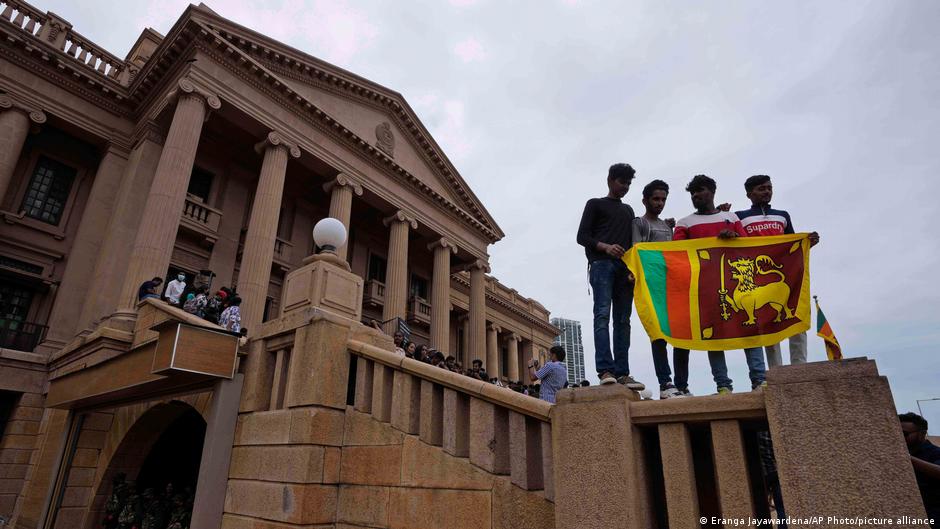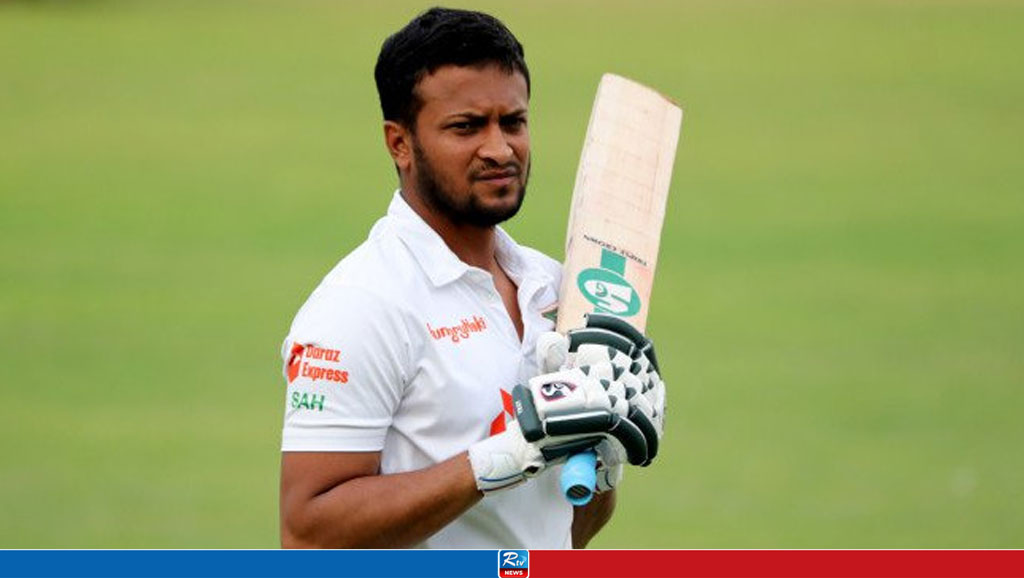Sri Lanka: No progress without revamp of political system

Without a complete transformation of the political system, Sri Lanka won't be able to eliminate the abuse of power and corruption that landed the nation in such dire straits, writes journalist Amirthanayagam Nixon.
These are turbulent times in Sri Lanka, with the country plunged into full-fledged economic and political turmoil. Despite the dramatic circumstances, the political class has not risen to the challenge. No politician seems to be in a position to come up with concrete solutions and put an end to the crisis. Ever since news emerged that President Gotabaya Rajapaksa would step down on Wednesday as a result of the popular uprising against his government, there has been a race to decide who the next president will be.
The country’s Sinhala ethnic-majority dominated political parties are also wrangling over who will become the new prime minister. Political bickering over who should take over Ranil Wickremesinghe, the leader of the United National Party, who took over as prime minister after the president’s elder brother Mahinda Rajapaksa stepped down in May following violent protests, tried hard to resolve the economic problems. Wickremesinghe, who had served as PM multiple times before his latest stint, has the political experience and the necessary connections internationally to secure foreign financial aid for Sri Lanka and get the country out of its economic hardship. According to the Sri Lankan constitution, if the president resigns, the prime minister becomes the acting president, until parliament convenes and selects a new president. So if Gotabaya steps down as promised, Wickremesinghe will automatically become interim president until parliament elects an MP to serve out the presidential term, which ends in November 2024.
But Samagi Jana Balawegaya, the main opposition party, is demanding that its leader Sajith Premadasa be made president. The Sri Lanka Podujana Peramuna party, dominated by the Rajapaksa family, continues to enjoy a majority in parliament and wants the next president to come from within its ranks. Another opposition party, Janatha Vimukthi Peramuna, is seeking the prime minister’s post. While political parties are bickering, the general public who are hit hard by soaring inflation and shortages of essential items, including food, fuel and medicine, are angry and dismayed by politicians self-serving rhetoric and actions.
Ethnic conflict and military budget
Meanwhile, industrial production has plummeted, export earnings have dried up and government coffers are empty. The country is bankrupt and has nearly exhausted its already scarce supplies of fuel. The reasons for Sri Lanka’s current economic turmoil date back to the nation’s almost three-decade-long civil war. This was a clash between the Sinhalese-dominated Sri Lankan government and the Liberation Tigers of Tamil Eelam insurgent group, which had hoped to establish a separate state for the ethnic Tamil minority, who make up about 15% of the nation’s 22 million people. Even though the conflict, which began in 1983, ended in 2009, successive governments continued to allocate more and more resources for the military at the expense of other development projects. Despite the economic problems, Colombo earmarked 373 billion Sri Lankan rupees ($1.86 billion, €1.8 billion) for the 2022 defense budget, a 14% increase over the allocation in 2021. In the 13 years since the end of the conflict, the Ministry of Defense has been the recipient of the highest share of the government spending. Ethnic tensions have hindered the country from developing its Tamil-populated northern and eastern regions, which are rich in marine resources.
The development of those regions could boost the economy, particularly seafood exports, generating wealth and foreign income. Likewise, the Kankesanthurai natural harbor in Jaffna, in the Northern Province, remains underdeveloped while the Trincomalee harbor on the east coast is used solely by the Sri Lankan navy for military purposes. This imposes a huge economic cost on Sri Lanka as ships carrying goods from India have to sail all the way to the Colombo port, on the southern coast, incurring huge costs. Total overhaul needed Ethnic polarization, discrimination and a lack of meaningful power sharing with minority Tamil and Muslim communities are the root cause of the current political and economic turmoil.
To prevent such crises in future, there will have to be a total eradication of ethnic tensions, corruption and abuse of power. That will require a complete overhaul of the Sri Lankan state and power structure. But the Sinhalese-majority dominated political parties and the Buddhist clergy are not ready for such changes, yet. There are now steps being taken to pass the 21st amendment to the nation’s constitution aimed at empowering the parliament and curbing the unfettered powers of the president. But simply passing such an amendment without a complete transformation of the political system won’t eliminate the abuse of power and corruption that landed Sri Lanka in such dire straits.
Comments
World's most expensive cow sold for $4.3 million in Brazil

Turkey: Polls close in Erdogan's 'last election'

Italy is overtaking Germany as Europe's economic powerhouse

Lawmakers urge Biden to call out more Chinese biotech firms

Gaza death toll crosses 33,000

US court orders exiled Chinese billionaire Guo Wengui to face fraud indictment

Hong Kong's lost freedom shows Xi Jinping's priorities: Analysis


 Live Tv
Live Tv

